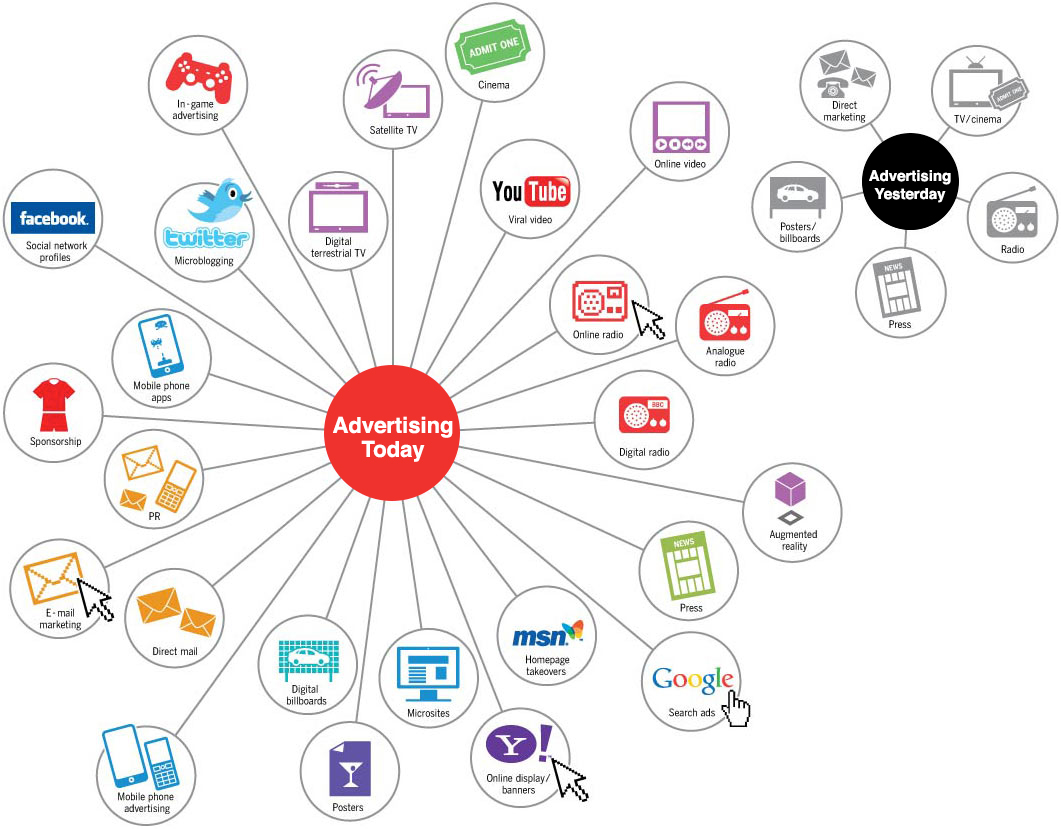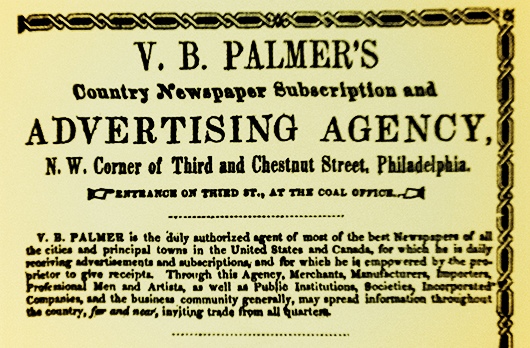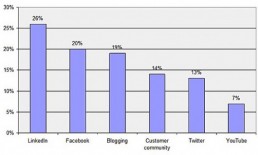Not the same old, same old.
The other day, I was talking with one of my colleagues at Fusion about how much things have changed in our industry over the last decade.
We’ve read articles about serious challenges that face the advertising agency and particularly the threat of Google and technology and how clients will be able to do it all themselves, eliminating the middle man.
The word agency essentially means middle man. An ad agency was actually the middle man in the early days when agencies made all of their revenues from media commissions. Advertising agencies began as “agents” of newspaper ad space. They would buy the ads at an agency discount and sell them to the client at the rate card rate.
The US’s first ad agency. (interesting story here)
The rise of digital marketing and social media was said to spell the end of the marketing middle man. Now, a company can speak directly to their market, hear what they have to say and promote themselves. They can do their own Google Pay-Per-Click or place their own Facebook ads. They can get their brand’s creative messaging done with crowd-sourcing, or “desktop publish” in-house (another harbinger to the death of the ad agency twenty years ago).
Instead, as the world of advertising changes, it has become incredibly more complex. The number of marketing channel choices has grown faster than anyone could have imagined and it continues to increase daily. Instead of simplifying marketing as was forecast, the digital age has brought waves of new data cascading down on the business. And smart strategies are only made by comprehending all of the data. Decision paralysis ensues.

Larger version here (click on it).
We used to come up with cool ideas with cool design and decide whether television, radio, print or outdoor was best. Standing out was most of the battle.
Equity research firm Pivotal Research Group mentions in a recent overview of ad agencies: “As marketers have come to face more and more choices for their marketing strategies, they increasingly rely upon external and ostensibly neutral partners—such as agencies—to both filter ideas and support the socialization of initiatives or process changes across the broader organization. This factor is the most critical one which explains why agencies face no credible threat of disintermediation from technology-driven marketing or media platforms.”
Traditional advertising agencies will die if they don’t change. But I don’t see many businesses, because it is now easier for them, taking on what we do to create a strategy and sell a product. It is much more difficult than it ever was. You need experts in all of the many alternative traditional and digital channels, and experts in messaging within these channels to get heard and be considered. And you can’t crowd-source a penetrating message without a keen analysis of all of the data, without the experts on the hundreds of channel choices and without the experts who know how to work within them.
We are changing all the time. Things are happening so fast that we are doing things here at Fusion that we didn’t do last year and dropping things that we did last year. Change is a great thing. Advertising has become so much more dynamic and exciting. And it has become a true science. I love it.

